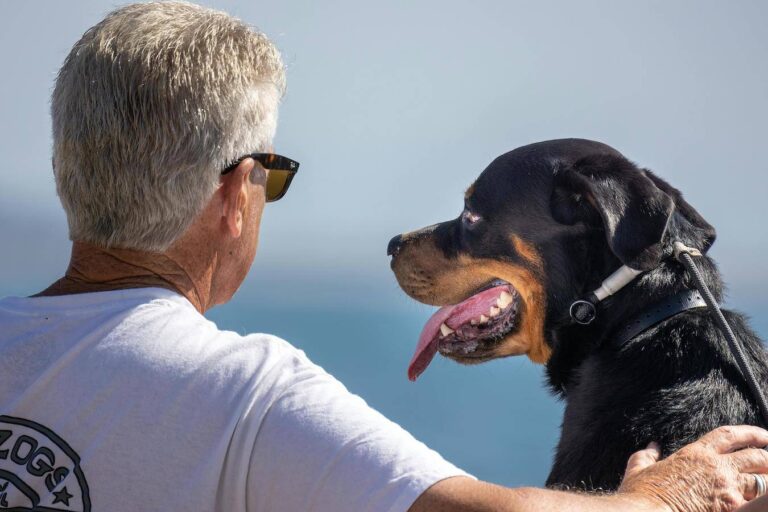Want to introduce a furry friend to your family? New research by Aqua reveals the most expensive and popular dog and cat breeds to own in the UK, and tips on how to budget for your new pet. I got it
More than half of UK households own a pet, with dogs and cats being popular choices. But how much does it cost to own one of the UK's most popular dog and cat breeds, considering all the fees?
Credit card brand Aqua has revealed the total lifetime costs of the UK's most popular dog and cat breeds, taking into account factors such as insurance, food, vaccinations and initial adoption and purchase costs.
According to our analysis, Rottweilers are the most expensive dog breed to own. Over their nine-year lifespan, owners can expect to spend around £26,161 on their care, with insurance making up a significant portion of this amount at an average of £1,509 per year.
“Rottweilers are the most expensive dogs to own due to insurance and food costs.”
This breed is also the most expensive to feed, costing an average of around £2.33 per day or £850 per year. The average Rottweiler weighs around 7.5 stone (which is about the same weight as a baby hippo), so it's no surprise that owners pay a pretty penny to feed these dogs.

Bulldogs can be expensive due to their health needs and medical costs.Credit: Chris
Bulldogs rank second in terms of overall spending, with an average lifetime cost of around £22,606. Despite their medium size, bulldogs pose a significant financial burden to their owners due to their specific health needs and potential medical costs.
With an average weight of 3.5 stone, the average daily food cost for a bulldog is £1.07, which is more than half the cost of feeding a Rottweiler.
The Golden Retriever secures third place among British dog breeds in terms of total spending. Owners can expect to spend around £19,532 over the life of their dog. When it comes to insurance, the average annual cost is around £643, which is a significant financial burden for owners.
However, compared to other dog breeds, Golden Retrievers have a relatively reasonable daily food budget, averaging around £1.50 per day.

Savannah cats are the most expensive breed to own.Credit: Jason Douglas
Research by Aqua has revealed that Savannahs are the most expensive cat breed to own in the UK. The kitten's original price was around £1,229, but the financial burden will continue over her 15-year life, totaling around £25,219.
Insurance costs an average of £603, making them more affordable than other breeds in our ranking.
The second most expensive cat breed is the Maine Coon. This breed, known for its distinctive bushy tail and large body, has an average lifespan of 13.5 years and a lifetime cost of £21,982.
“A Maine Coon, known for its bushy tail and large body, has a lifetime cost of around £21,982.”
Insurance premiums for this breed average around £672.84, slightly higher than Savannah premiums.
Ranking third among the most expensive cat breeds to own is the Russian Blue. Renowned for its elegant appearance and striking blue-gray coat, this breed carries a financial burden of approximately £20,319 over its 15-year lifespan. Russian Blue insurance costs an average of £566.40 per year, making it the cheapest of the top three.
Aqua also shared some important tips to make caring for your new pet more affordable.
1. Plan your initial costs. The initial cost of a pet is usually higher than its ongoing costs, including not only purchasing or adopting the pet, but also initial vaccinations, veterinary fees, and necessary accessories. Before bringing your new pet home, it's a good idea to save up for the first year's costs to ensure you have peace of mind that you'll be able to provide proper care.
“Set aside funds each month to provide a safety net for unexpected pet expenses.”
2. Create a pet care budget. It is essential to consider ongoing expenses such as food, trash bags, grooming, and trash. By tracking the frequency of these purchases, you can create a monthly budget tailored to your pet's needs, allowing you to properly plan your finances for your pet's care.
3. Prepare for the unexpected. When owning a pet, it's important to be prepared for unexpected expenses. These costs may include emergency medical care or the need for accommodation while you are away. Setting aside funds each month provides a safety net for unexpected expenses. Additionally, comprehensive pet insurance can reduce the financial burden associated with veterinary fees, third-party liability, boarding, hospitalization, and overseas veterinary fees.
Banner photo: Rottweilers are the most expensive dog breed for owners.Credit: David Brown
Check out the top news from Reader's Digest by subscribe Go to weekly newsletter





